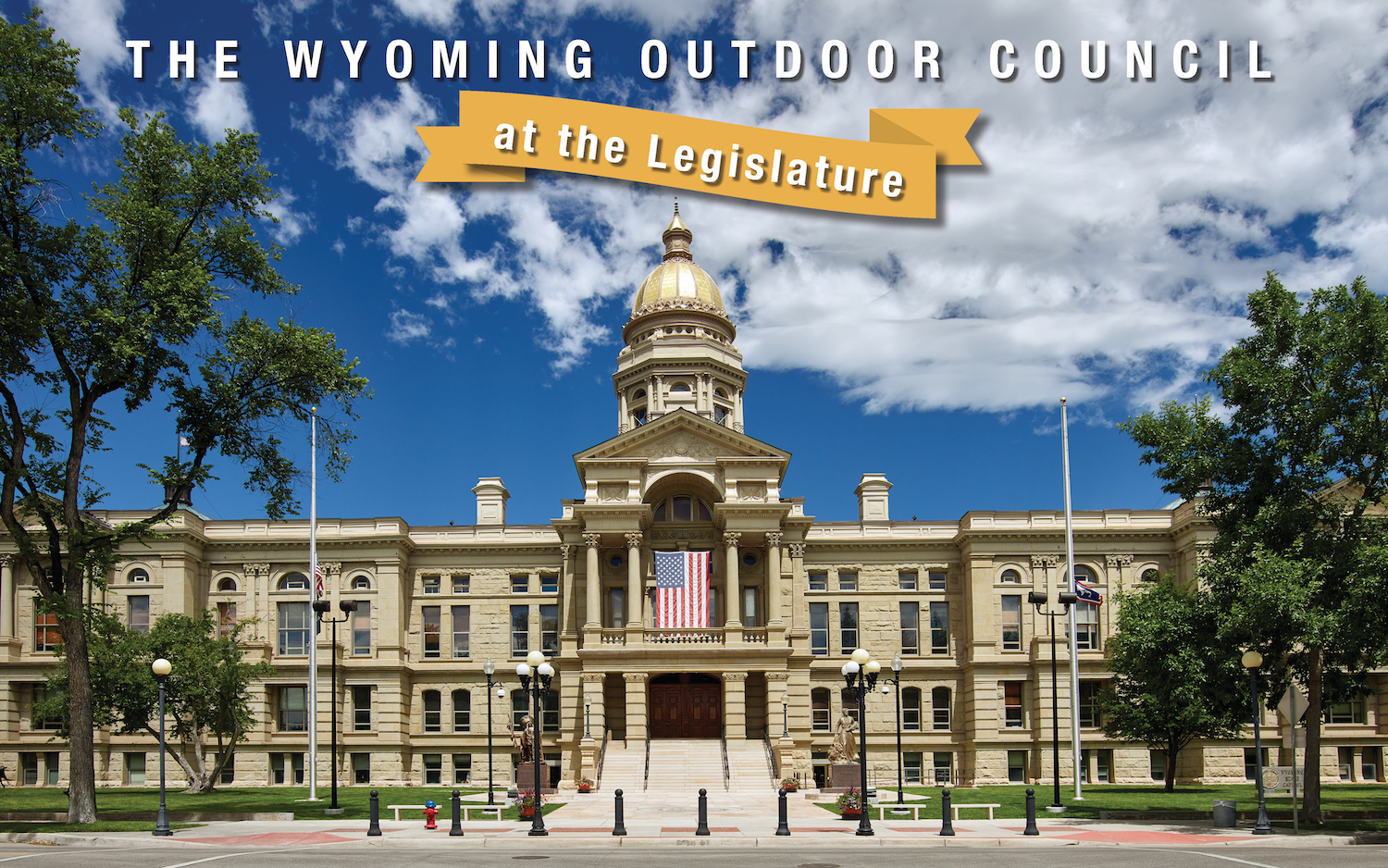Many legislative committees have already launched into their “interim” work (the rest of the year between winter sessions), and we’ve been traveling the state to attend the public hearings and advocate for smart conservation policy.
Last month we mentioned a major legislative success: you helped us convince the Minerals Committee to back off from a proposal for the state to take over the federal authority for evaluating oil and gas development (and other projects) on public lands in Wyoming. Read this WyoFile article for more details about abandoning the idea for Wyoming taking over NEPA primacy. This is the level of influence we can have when we collectively mobilize and engage with lawmakers throughout the year. Thank you!
A good governance opportunity
We traveled to Gillette to cover the “joint” (House and Senate) Minerals, Business and Economic Development Committee, which takes on big topics with big implications, such as fossil fuel and renewable energy policies.
One proposal we’re following closely would revise public comment rules regarding permitted mines (think gravel pits and everything that’s not a big coal mine). The Wyoming Department of Environmental Quality’s public comment rules generally allow for adequate public notice, public comment, and comment response. However, when it comes to non-coal mines, any public comment on a proposed permit automatically triggers a hearing before the DEQ’s governing body — the Environmental Quality Council.
This can be intimidating for citizens and small groups that merely wish to provide information and comments that may be useful for the DEQ to consider. Environmental Quality Council cases are legally technical — proceedings are similar to a court hearing. Often there are discovery submissions and attorneys involved. All of this can discourage citizens from weighing in and offering helpful information regarding a proposed small mine permit.
We’re supporting a measure that would allow for an informal conference before triggering a full hearing before the EQC. This good governance revision will encourage more free exchange and problem solving among stakeholders and the DEQ.
Time to refocus on oil and gas emissions, and ozone
At the Minerals Committee, we also heard a report by the DEQ about the series of dangerous ozone spikes in the Upper Green River Basin this past winter. The DEQ recently conducted a survey of compliance among oil and gas operators there. DEQ Administrator Todd Parfitt told committee members the results were disappointing: the agency found that operators were less than 70 percent in compliance with emissions requirements.
We’re grateful to the Pinedale-based Citizens United for Responsible Energy Development for its leadership on this issue. They identified compliance and inspection issues as essential for lowering industrial emissions in the area. We’re joining the grassroots organization in seeking solutions that will help ensure clean air in the Upper Green River Basin — including better accountability from the state to protect clean air and public health.
Stay tuned — we’ll write about ozone efforts in a separate blog post.
In coming months, the Minerals Committee will also explore measures regarding Wyoming’s oil and gas regulations, as well as potential actions to better manage a historic glut of applications for permit to drill in eastern Wyoming. We expect more discussion and action on these topics at the committee’s next hearing in August.
Wildlife, renewable energy, invasive species
Also in Gillette, the Transportation, Highways and Military Affairs Committee laid out several options to provide stable funding for safer wildlife crossings. There’s broad support for this effort, but still a lot of discussion ahead about how to fund it. The Wyoming Department of Transportation’s top 10 priority wildlife crossing projects are estimated to cost between $197.5 million to $256 million. (Check out WyDOT’s excellent wildlife crossings presentation here.)
At the Joint Corporations, Elections and Political Subdivisions Committee hearing in Casper, we encouraged lawmakers to consider more flexibility in Wyoming’s laws regarding onsite renewable energy use, including rooftop solar installations and net-metering. We see many opportunities for the state to modernize its laws around small-scale, onsite renewable energy to support property owners’ desire for electrical self-sufficiency and to help add more jobs in response to growing demand for renewables.
Next, we’ll travel to Sheridan for the Agriculture, State and Public Lands and Water Resources Committee hearing where the growing threat of invasive plant species will be a major topic. In Gillette, the Travel, Recreation, Wildlife and Cultural Resources Committee will discuss chronic wasting disease, state lands, and efforts to encourage Wyoming’s growing tourism and outdoor recreation industries.
Good conservation legislation depends on you!
In all of our conservation advocacy we look for ways to be proactive, and that includes forwarding a conservation agenda for the legislature. We’re currently crafting several measures we believe all Wyomingites can get behind (more on these later) — and we want to hear from you about your conservation ideas. Our work is not possible without you! If you have an idea the legislature should consider, or if you’re looking for more details about a legislative topic we’re following, contact our program director Steff Kessler at stephanie@wyomingoutdoorcouncil.org.
Don’t forget to check the legislature’s calendar for upcoming meetings and agendas. You can also livestream many of the meetings as they happen. To watch past legislative meetings, go to the Wyoming Legislature’s website, click on the committee you’re interested in, and click on the “audio/video” tab.
Dustin
Bleizeffer
Communications Director
Staff

